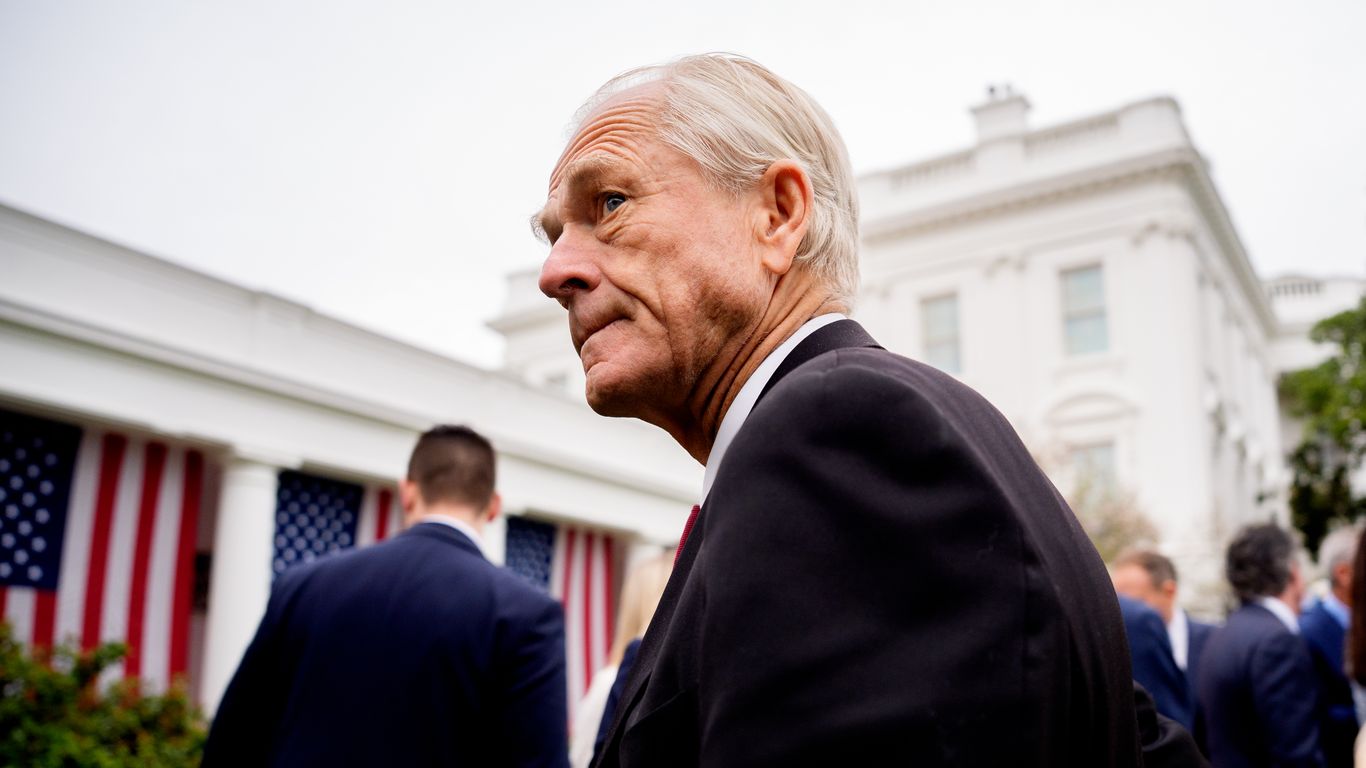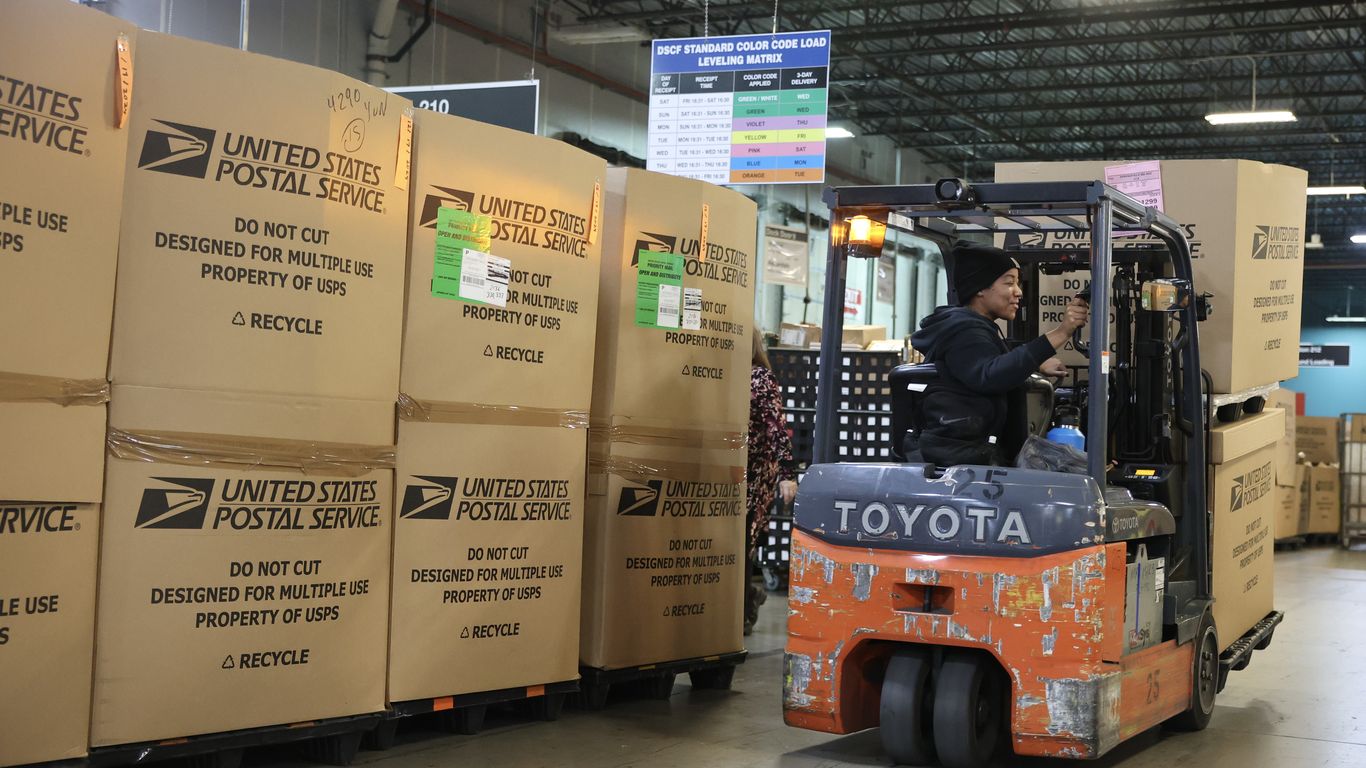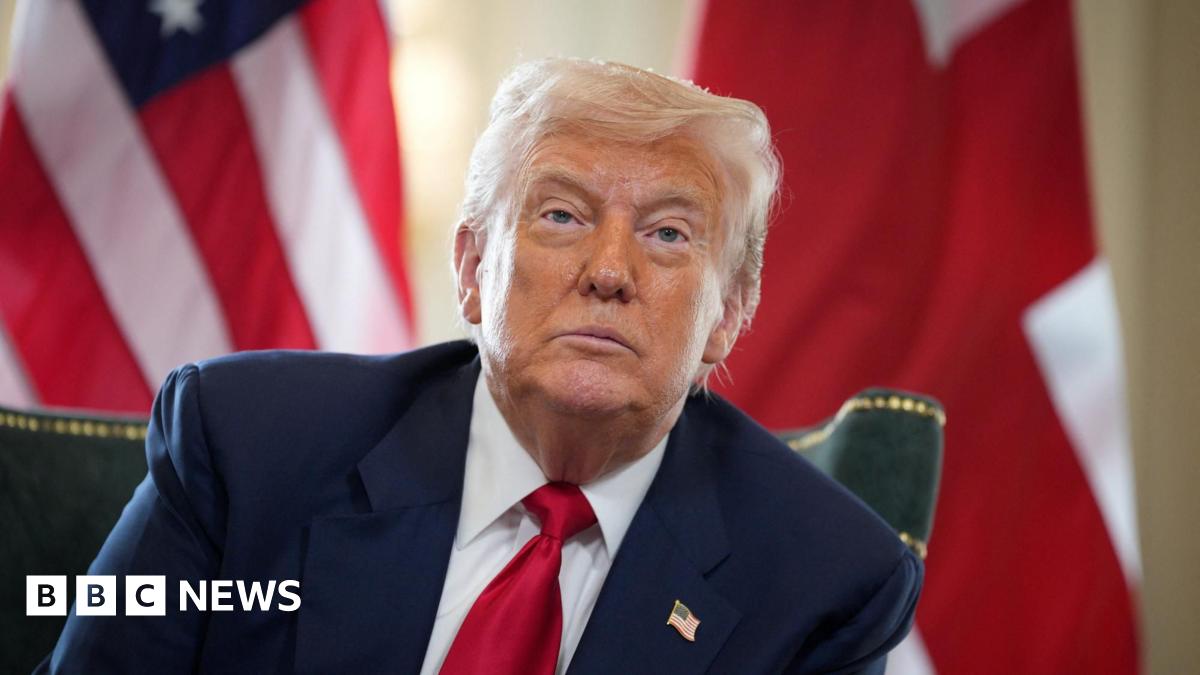U.S. Supreme Court Ruling on Tariffs Could Have Major Implications

Introduction
The U.S. Supreme Court is set to rule on the legality of tariffs, a decision that could have significant implications for the economy. U.S. Treasury Secretary Scott Bessent recently stated that there are "other authorities that can be used" to uphold the tariffs, even if the Court rules them illegal. This raises questions about the potential consequences of the Court's ruling and the role of other authorities in enforcing tariffs.
Analysis
One possible consequence of the Court's ruling against tariffs is that it may open the door for other countries to challenge the U.S.'s use of tariffs. This could have a ripple effect on global trade, potentially leading to increased tensions and trade disputes. Additionally, the use of other authorities to uphold tariffs could lead to a lack of transparency and accountability in the decision-making process, as well as potential conflicts with existing trade agreements.
Implications
The potential impact of the Court's ruling and the use of other authorities to uphold tariffs highlights the need for a comprehensive and transparent approach to trade policies. This includes considering the potential consequences and implications of such policies, as well as ensuring they align with existing trade agreements. It also raises questions about the role and authority of different branches of government in making and enforcing trade policies.
About the People Mentioned
Scott Bessent
Scott Bessent is an American government official and former hedge fund manager, currently serving as the 79th United States Secretary of the Treasury since January 28, 2025. Born on August 21, 1962, in South Carolina, Bessent graduated from Yale College with a degree in political science in 1984. Initially interested in journalism, he shifted to finance after missing out on a role at the Yale Daily News. He began his career with an internship under Jim Rogers, George Soros's first partner. Bessent's career in finance is marked by significant achievements. He was a key figure at Soros Fund Management, where he managed the London office and played a crucial role in profiting from major currency bets, notably earning $1 billion during the British Pound sterling crisis on Black Wednesday and $1.2 billion betting against the Japanese yen in 2013. After leaving Soros in 2015, he founded Key Square Capital Management, a global macro investment firm. Bessent also taught economic history as an adjunct professor at Yale University. In politics, Bessent has been involved as an economic advisor and major donor to the Donald Trump 2024 presidential campaign. His nomination as Treasury Secretary was announced by President-elect Trump on November 22, 2024, and he was confirmed by the Senate on January 27, 2025. As Secretary, Bessent focuses on maintaining economic strength, promoting growth, and enhancing national security through financial management. He is noted for his views on globalization and tariffs, advocating for updates to the international trading system to address inequality and economic disparities. Bessent's appointment marks him as the second openly gay man to serve in a U.S. Cabinet and the highest-ranking openly LGBT person in the federal government. His tenure as Treasury Secretary is expected to shape U.S. economic policies, particularly under the Trump administration's agenda.
About the Organizations Mentioned
U.S. Supreme Court
The **U.S. Supreme Court** is the highest judicial authority in the United States, established by Article III of the U.S. Constitution and formally created under the Judiciary Act of 1789. It serves as the ultimate arbiter of constitutional and federal law, with the power to interpret the Constitution, review laws, and overturn those deemed unconstitutional, thus checking the legislative and executive branches of government[1][4][6]. The Court first convened in 1790 with six justices, including its first Chief Justice, John Jay. Over time, Congress adjusted the number of justices, settling at nine in 1869, comprising one Chief Justice and eight Associate Justices, all appointed by the President and confirmed by the Senate[1][3][6]. Justices hold lifetime appointments, ensuring judicial independence. The Court initially lacked prestige but gained significant authority under Chief Justice John Marshall (1801–1835), who established judicial review in *Marbury v. Madison* and solidified the Court as the definitive interpreter of the Constitution[10]. Key achievements of the Supreme Court include landmark rulings that shaped American federalism and civil rights, such as *McCulloch v. Maryland* (affirming federal power), *Gibbons v. Ogden* (regulating interstate commerce), and the establishment of judicial independence during the impeachment proceedings of Justice Samuel Chase. The Court also modernized its procedures by issuing unified majority opinions instead of individual ones[10]. Today, the Supreme Court sits in its dedicated building in Washington, D.C., completed in 1935, holding annual terms from October to late June or July. It exercises original jurisdiction in limited cases (e.g., disputes between states) and primarily appellate jurisdiction over federal and constitutional issues[4][6]. For readers interested in business and technology, the Court’s decisions profoundly impact regulatory frameworks, intellectual property law, and digital privacy rights, influencing the legal landscape in which modern enterprises operate. Its role in balancing governmental


















